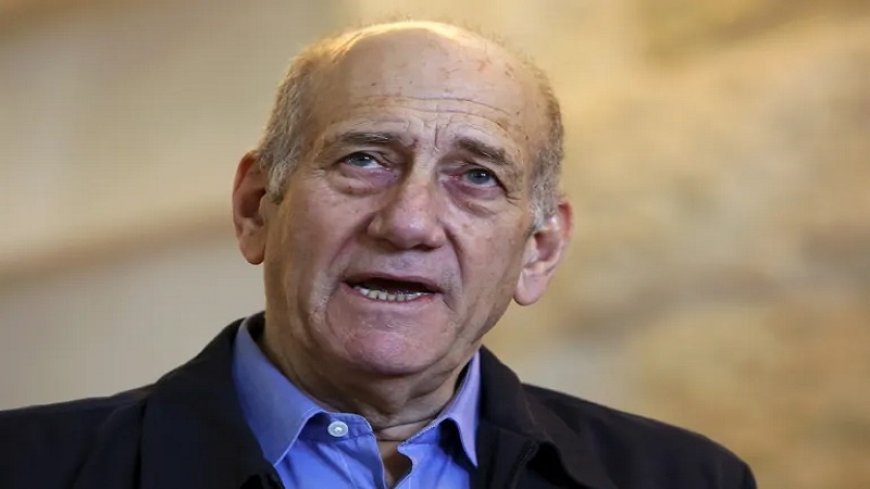Former Israeli PM Ehud Olmert: Netanyahu is Israel’s Real Threat, Not Iran or Hamas
In a recent interview with CNN, former Israeli Prime Minister Ehud Olmert leveled pointed criticism at the current leadership of Israel, directing his strongest words at Prime Minister Benjamin Netanyahu. Olmert contended that Israel’s greatest threat is not from external adversaries like Iran, Hezbollah, or Hamas but from within—particularly from what he described as Netanyahu’s close alliance with radical elements in Israeli politics.

“Netanyahu relies on extremists and turns a blind eye to their unacceptable actions,” Olmert said, referring to Netanyahu’s political coalition with far-right figures like National Security Minister Itamar Ben-Gvir and Finance Minister Bezalel Smotrich. The former prime minister argued that this alliance is endangering Israel’s stability and future, adding that Netanyahu has shown himself unwilling to address the internal divisions deepening within Israeli society.
Olmert’s critique of Netanyahu’s leadership is not new but reflects a growing movement within Israel calling for significant reform and a reorientation of political priorities. This friction reached a boiling point last year when Olmert urged Israelis to protest en masse, declaring the Netanyahu-led government as dangerously steering Israel off course. “Israelis must rise up by the millions,” Olmert proclaimed at the time, advocating for peaceful demonstrations to highlight the administration’s failure to uphold the rule of law.
Olmert further underscored Netanyahu’s detachment from the realities confronting the nation. “He lives in a bubble, convinced that he and his allies are solely defending Israel’s existence,” Olmert said. This disconnect, he argued, has led Netanyahu’s government to compromise democratic norms, restrict freedoms, and weaken the very principles on which Israel was founded.
The former prime minister’s comments also tap into a wider debate about the role of religion in Israeli politics. Just last year, Olmert warned that Netanyahu’s policies could lead to an internal conflict within Israel, dividing those aligned with fundamentalist views from those advocating a more secular, democratic society. This potential rift, Olmert suggested, could pose a greater risk to Israel’s future than any external adversary.
In the face of rising regional tensions, Netanyahu’s government has continued to prioritize an aggressive stance toward Iran and militant groups like Hezbollah and Hamas. Olmert, however, contends that this focus detracts from urgent domestic issues that are fracturing Israeli society, eroding its democratic institutions, and distancing it from the values of equality and justice central to its founding.













































